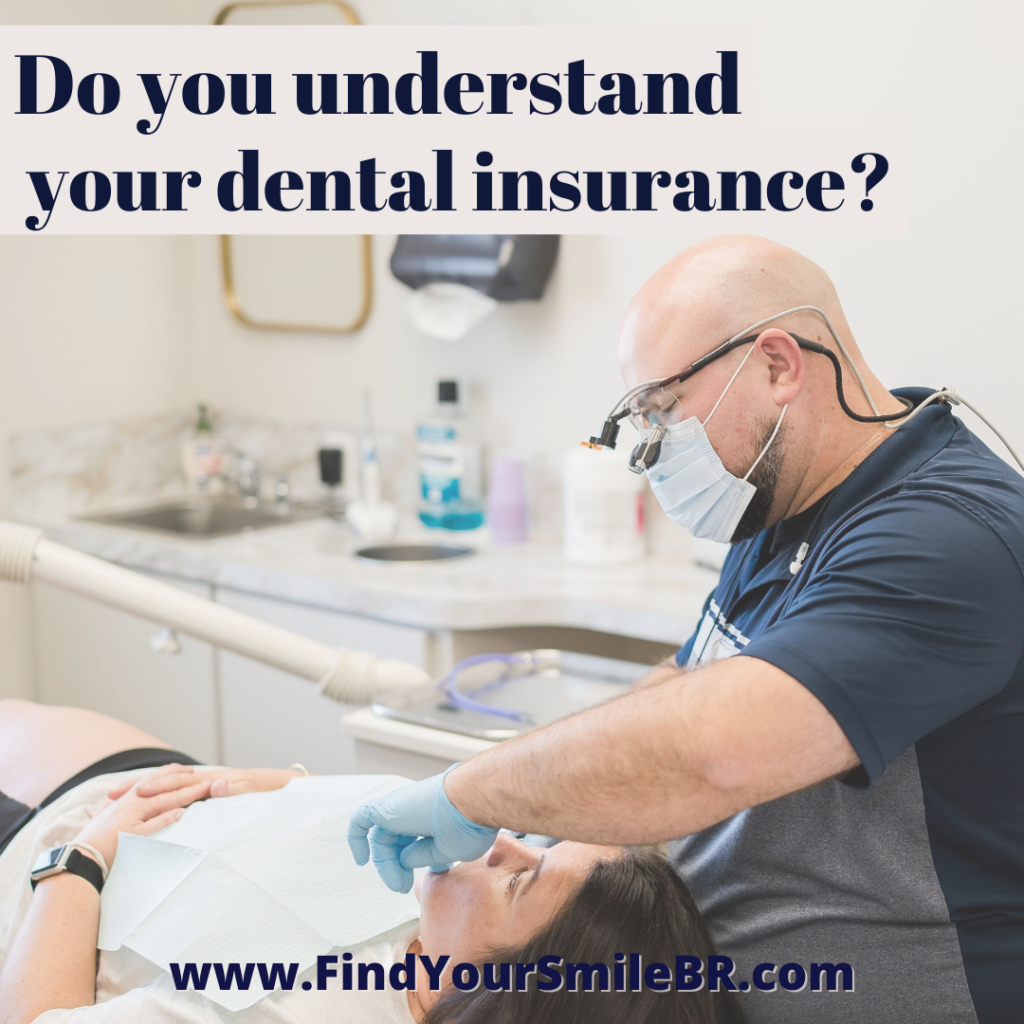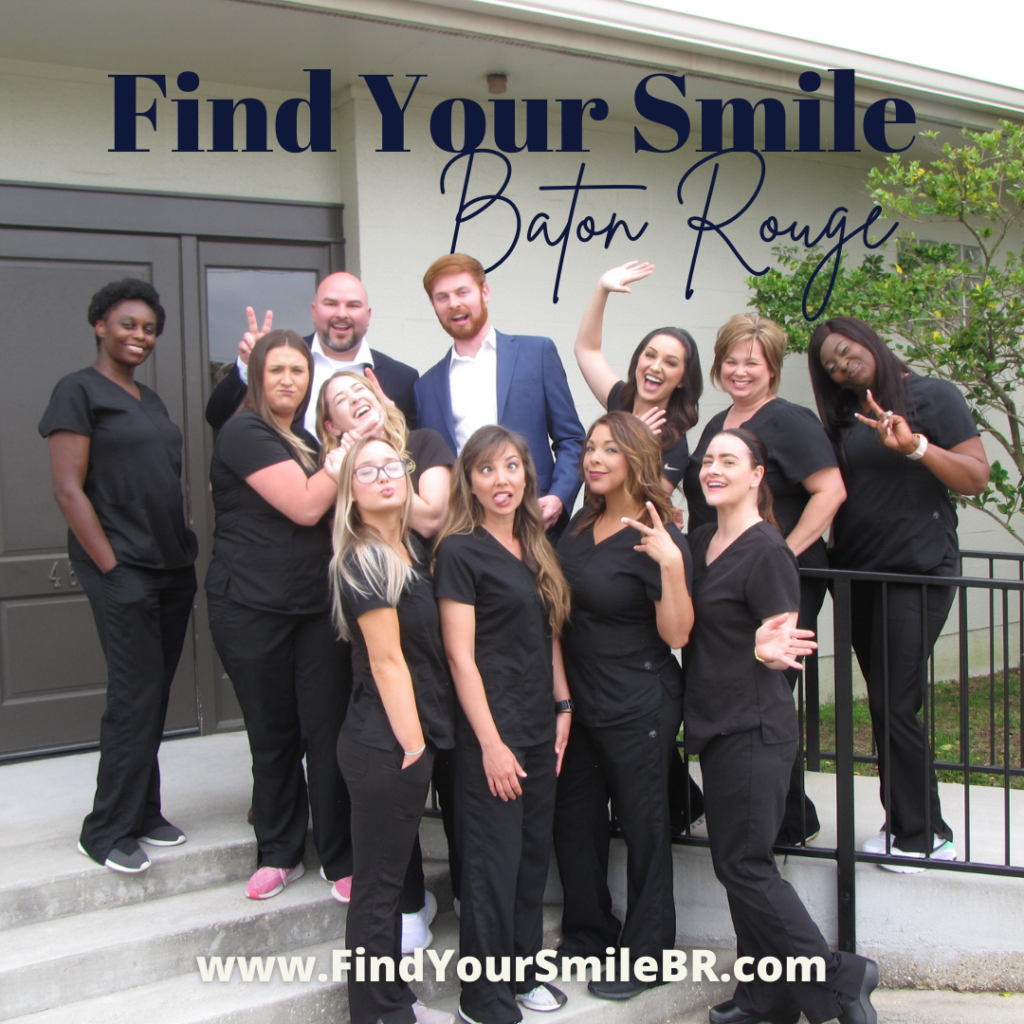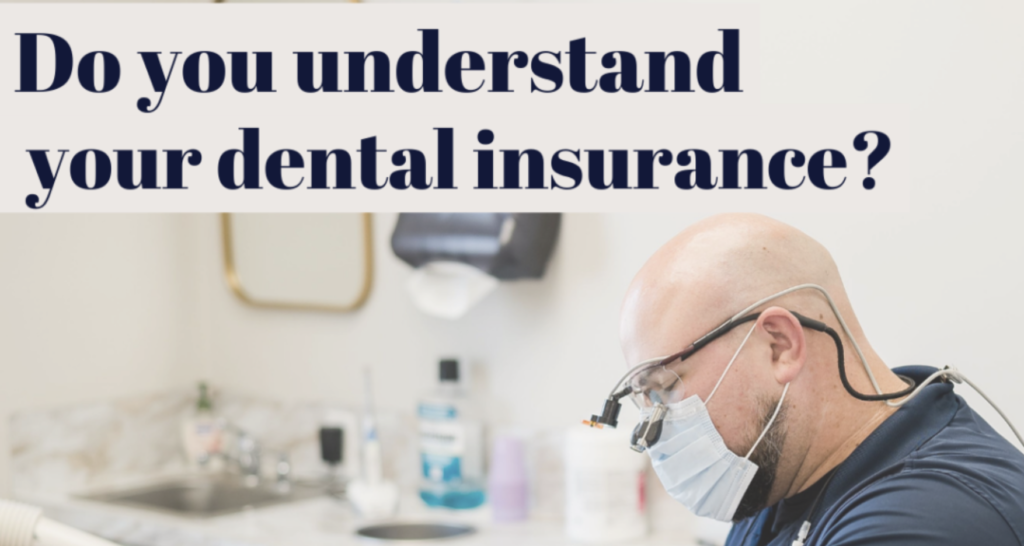Dental insurance is an important part of ensuring access to the dental care you need to maintain your oral health. But with so many types of dental insurance plans available, understanding dental insurance isn’t always easy.
Understanding Dental Insurance:
An Ultimate Guide By College Family Dentistry
Whether you receive dental insurance through your job, have purchased individual dental insurance or are navigating seeing a dentist without insurance, it’s important to understand how dental insurance works and what your options are.
Keep reading to explore the ins and outs of dental insurance.

How Dental Insurance Works
Most dental insurance plans are designed to cover a portion of the costs for your dental care services.
Dental insurance plans typically cover 100% of preventative and diagnostic procedures, such as regular cleanings and X-rays, and a percentage of other procedures such as cavity fillings, root canals and tooth extractions.
While some dental insurance plans may cover cosmetic procedures such as teeth whitening, teeth straightening and veneers, many plans do not include coverage for these elective procedures.
Some dental offices will have you pay out of pocket at the appointment for any fees not covered by your insurance, while others may send you a bill following your appointment.
Either way, “it’s important to have a good understanding of your dental benefits before arriving at the dentist for an appointment,” said Baton Rouge dentist Dr. Evan Morse. If you’re local, the best way to do this is to call your Baton Rouge dentist office and talk to a treatment coordinator, who can help you navigate what is covered under your dental plan and what your out-of-pocket costs may be.
When working on understanding dental insurance, it’s also important to keep in mind that dental insurance plans are typically annual plans. Most include a “use it or lose it” feature, meaning that if you don’t use your benefits within the calendar year, they won’t carry over into the following year.
If you’re nearing the end of your annual plan and still have unused benefits, be sure to call your dentist and talk with them to identify which benefits need to be used before the end of the year.
“If you need work done we will work hard to get you into the office before benefits expire to maximize your covered,” said Baton Rouge dentist Dr. Morse.
Understanding Dental Insurance: Types of Dental Insurance
The first step toward understanding dental insurance and your specific dental plan, is to explore the types of dental insurance available. There are several primary types of dental insurance plans.
Preferred Provider Organizations (PPO)
A PPO dental insurance plan typically features a network of dentists under contract to the insurance company. Contracted dentists must accept the maximum allowable fee outlined by the plan. With a PPO
plan, you’ll likely look for an “in-network” dentist, but can still see an out-of-network dentist, though out of pocket costs may vary. For example, if you’re in Baton Rouge dental insurance PPO plans will typically cover dentists in your area.
Dental Health Maintenance Organizations (DHMO)
With a DHMO plan, dentists are pre-paid a certain amount each month for each patient assigned to them. Dentists then provide specific services at no-cost or reduced cost to those patients. Because the plan doesn’t reimburse for individual services, patients usually must see an in-network dentist to use their benefits.
Indemnity Plans
This is sometimes referred to as traditional insurance. In this type of dental insurance plan, the insurance company pays claims based on the specific procedures performed, usually covering a percentage of the total fee. Patients are typically able to choose their own dentist.
Direct Reimbursement
With a direct reimbursement dental insurance plan, benefits are based on actual dollars spent, rather than on the type of treatment received. Patients are able to go to the dentist of their choice. A patient typically pays the dentist directly and then submits a receipt to be reimbursed by their insurance company.
Discount or Referral Plans
A company selling a discount dental plan typically contracts with a network of dentists, who agree to discount their dental fees to enrolled patients. Patients pay out of pocket for the discounted rate. While these are often sold to individuals, companies may also purchase discount plans for their employees. Additionally, some dentist offices, like our Baton Rouge dentist office, may have discount dental plans of their own.
Understanding Dental Insurance: Choosing Your Best Option
If you get your dental insurance from your employer, you likely won’t have a choice about the type of dental insurance you receive. But if you’re shopping around for an individual dental insurance plan, or you’re looking for a plan for your employees, it’s important to consider a few key factors when choosing a plan.
- Costs: Make sure to review the cost for the plan compared to the cash cost of preventative procedures. While dental insurance is a valuable resource, you want it to be worth it.
- Coverage: Make sure that your dental plan covers at least basic preventive and diagnostic dental care, such as regular cleanings and annual x-rays.
- Waiting Period: Does the dental plan have a waiting period before benefits take effect? If you need care quickly, seek out dental insurance without a waiting period so you’re covered right away.
- Pre-Existing Conditions: Much like health insurance, any pre-existing dental conditions you have could impact your coverage or your dental insurance costs. Be sure to look into whether there are any existing dental issues you’re facing that could affect your insurance.
No Dental Insurance? You Still Have Options
It’s great to have dental insurance, but you can still see a dentist without insurance. If you don’t have dental insurance, you typically have a few options.
Pay Out of Pocket
Most dentist offices, including our Baton Rouge dentist office, accept cash, credit cards and checks to cover dental procedures. This is one of the simplest ways to pay for the dentist without insurance, especially if you’re able to afford the costs of your dental treatments.
Purchase Individual Dental Insurance
If you don’t get dental insurance as a benefit through your job, there are plenty of options to purchase personal dental insurance so you’re not faced with a trip to the dentist without insurance at all.
Sign Up for A Discount Dental Plan
A discount dental plan could also be a good option. At College Family Dentistry in Baton Rouge, our Discount Dental Plan includes two healthy hygiene cleanings, two exams and an X-Ray series per member, as well as a periodontal evaluation and intraoral camera exam. Additional services, including cosmetic or restorative dental procedures, emergency visits and Invisalign services, are offered at a discount.

Be sure to read our full guide to seeing a dentist without insurance.
Understanding Dental Insurance: Is Dental Insurance Worth It?
If you’ve generally had good oral health throughout your life, it can be easy to wonder if dental insurance is really worth the cost.
On average, Americans pay about $360 each year, or between $15 or $50 per month for dental insurance. While this amount may exceed the annual cost of a discount dental plan, it is significantly lower than the costs for more intensive dental procedures like fillings, root canals or tooth extractions.
And while simply skipping the dentist if you’re experiencing no obvious dental issues or pain may seem like a fine idea, it can cost you a lot more in the long run – to both your wallet and your health.
Keeping up with regular cleanings, X-rays and other preventative dental care can help spot a potential issue early on, reducing your need for expensive procedures and improving your oral health overall.
If you have any questions about your insurance plan or need more help understanding dental insurance, please contact one of our family of Baton Rouge area dental offices. We’re always happy to help!
“Ask the Experts” is a series on Baton Rouge Family Fun where local experts share their thoughts, opinions and answer questions relating to health, wellness, parenting and living in Baton Rouge.



